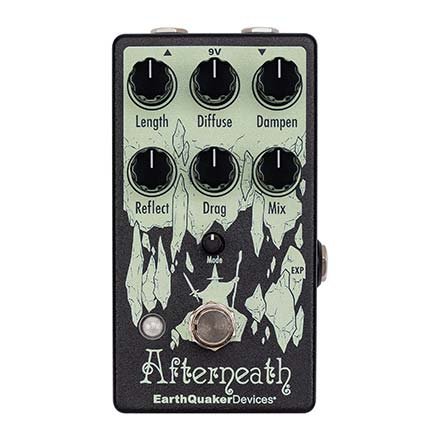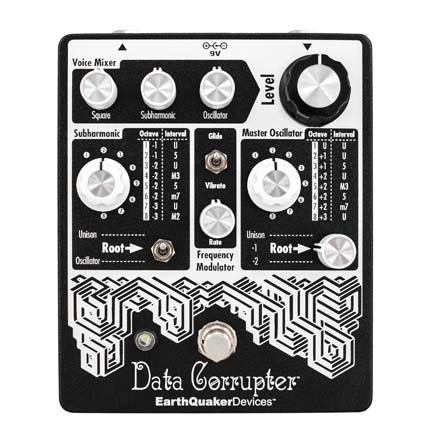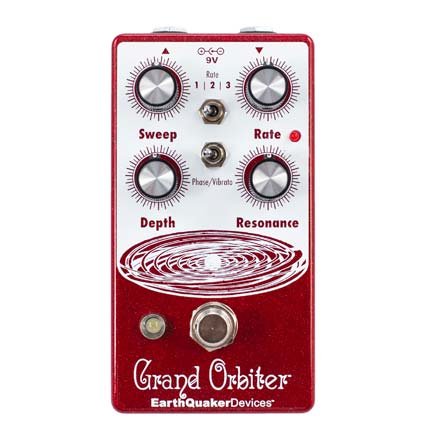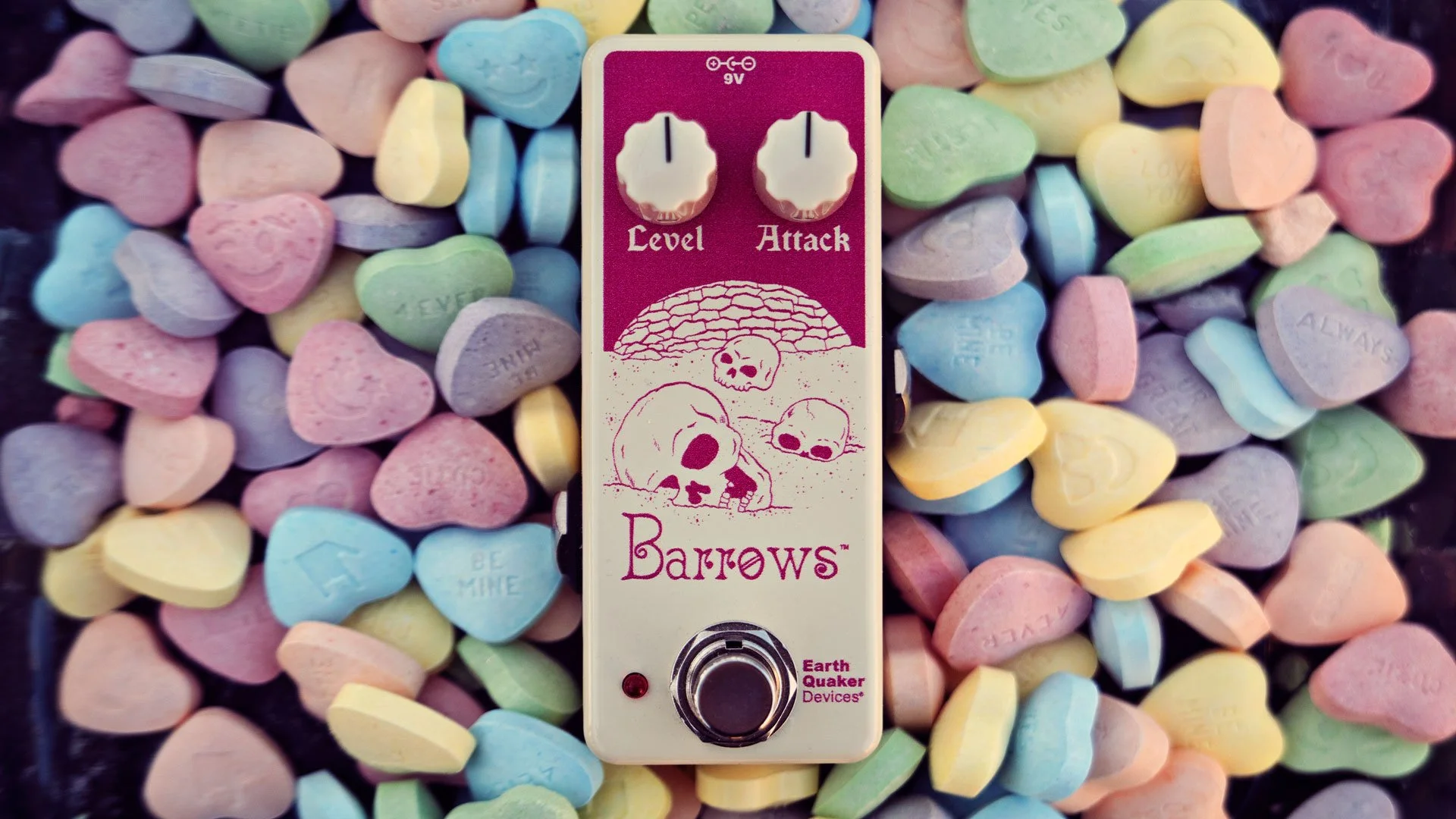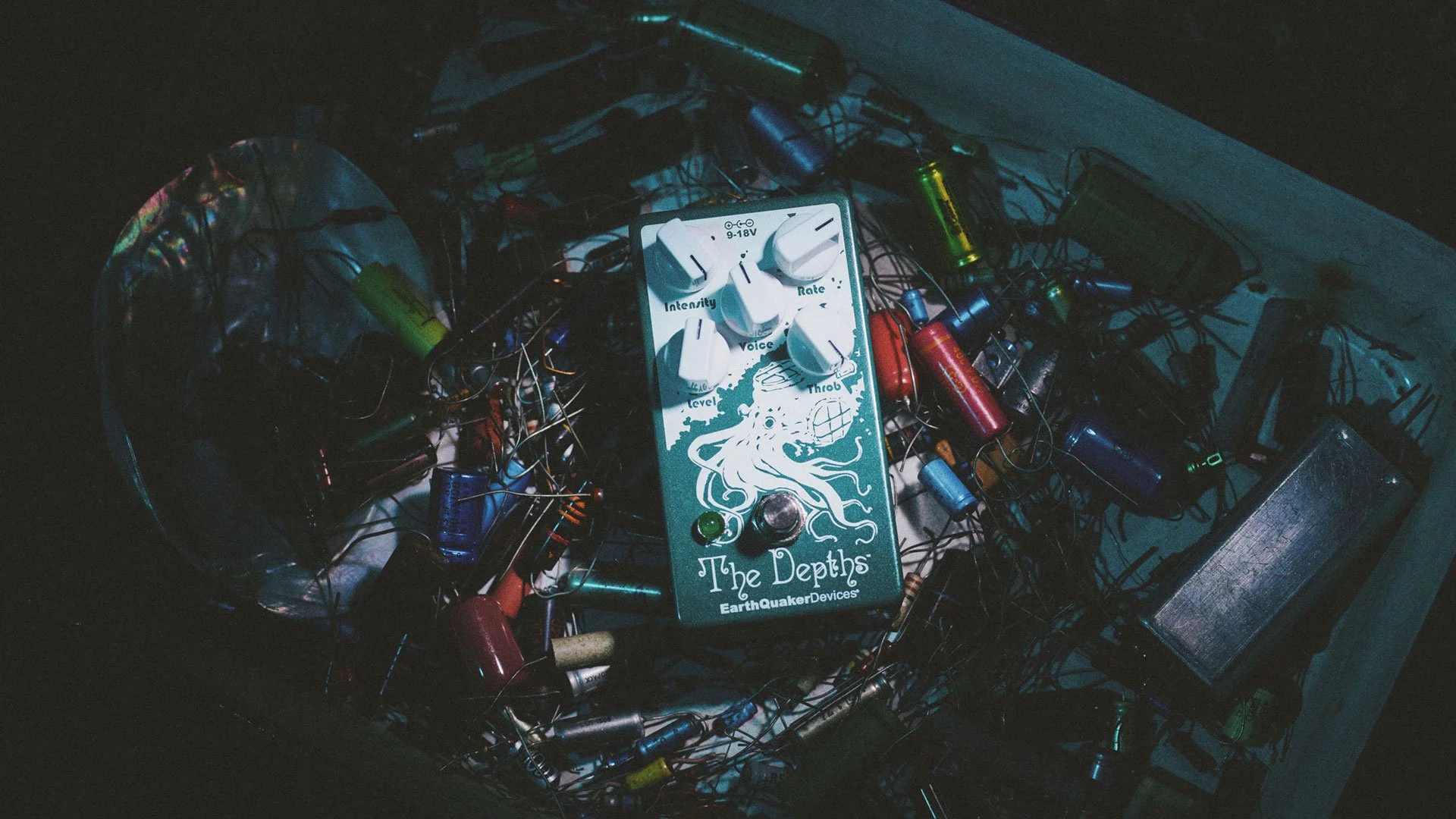Brian Cook : From Torment to Glory
Jon D’Auria
After his beloved gear was stolen during a recent tour, the bass pedal guru quickly found the music world rallying around his band Russian Circles.
Through the entirety of his three-decade career, bassist Brian Cook has made a name for himself by delivering brutal and powerfully effected tones while creating innovative music across heavy genres. Based in Seattle, Washington, Cook got his start with his influential mathcore band Botch in 1993, until the group disbanded in 2002. He then went on to form the experimental post-hardcore outfit, These Arms Are Snakes until he was recruited by Chicago instrumental rockers Russian Circles in 2007. As of recent, when he’s not in the studio or on the road with Circles, he’s busy playing in his sludge metal trio Sumac and releasing solo material under the moniker Torment & Glory, whose debut album We Left a Note with an Apology was released back in August of 2021. The thread through all his numerous projects is his distinct playing, his creative riffs, and his wild use of effects, which he expertly hones in ways that few bassists can. His prized gear – including his rare basses, amps, and many obscure pedals – has all been hand-selected throughout his impressive career, which is why he was devastated when he was robbed of it on his most recent tour.
Photos by Ekaterina Gorbacheva.
Just two stops into embarking on his first arena tour with System of a Down, Korn, Faith No More, and Helmet, Cook and the rest of Russian Circles awoke to find their van broken into and their gear stolen outside of a hotel. Crushed by the loss of the tools of their art and livelihood, they still had a big tour to complete with no instruments, amps, or pedals with which to perform. To their surprise, the internet came to the rescue, as social media flooded with posts about their incident and fundraisers popped up to support them. Additionally, the band’s gear companies stepped in and instantly provided them with replacements for all of their lost equipment, including Cook’s rare Electrical Guitar Company Series II bass, his Darkglass cabinets, and his EarthQuaker Devices pedals, which always hold places on his pedalboard. Thanks to the generosity of their fans and endorsers, they finished the tour and had their faith restored.
Despite his tragic setback and overcoming the perils of the 2020 lockdown, Cook’s calendar is already happily packed full for 2022. Russian Circles just wrapped production on their eighth studio album, which will come out in the summer, followed by heavy touring. These Arms Are Snakes is releasing a double LP of rarities and b-sides in April and are teasing more reunion shows. Sumac has some tour legs later in the year with some one-off recordings, and Botch is releasing a new edition of their seminal album We Are The Romans [1999], with a surprise bonus included. Cook is also preparing to write another album as Torment & Glory. Happy to have his gear replaced and his pedalboard back in order, Cook is inspired and ready to do what he always does, write some uniquely powerful songs and push every level of frequency he can.
Russian Circles perform “Sinaia.”
You’re coming off of a big year in 2021 after the lull of touring and performances in 2020. How did it feel to be performing again after so long?
It felt great and very cathartic being back on stage, but that tour was a really weird one. The initial offer for our first shows back was for us to go out with System of a Down, Korn, Faith No More, and Helmet. We’re some weird punk, indie, metalhead dudes, so that tier of rock music is very foreign to us. At the age when other kids were listening to Motley Crüe, I was listening to Minor Threat and other obscure stuff. But growing up, we were big fans of Faith No More and Helmet, so we were excited to watch them from the side of the stage. Aspirations for stadium performances were never part of my childhood, so it was a strange offer to receive. But we were intrigued by it nonetheless and had never done something like that before, so we figured we’d go for it.
What was it like playing an arena tour that size?
It was pretty low pressure for us because we were playing like 20 minutes sets, which is pretty much three songs for us. For opening slots like that, no one is there to see you and no one there probably wants to see you, so you just go up and plow through your material, get offstage, and that’s it. Play as hard as you can, and don’t give people a chance to really think or respond. Just get up there and knock them out. We were fortunate that people were responsive and positive to it. Then after two shows, we got robbed, so we had to cobble some gear together to do the rest of the shows. But it made me realize that I’m happy playing 500 person venues. That was always the dream.
That was big news in the music world. How exactly did all of your gear get stolen?
We played Fresno, California, for the second show of the tour, and it was the one night of the stretch that we weren’t entirely sure where we were going to stay afterward. On the other tour dates, we were able to keep our van with our gear in safely gated areas, but on this night, we had to drive up to Oakland, where we stayed at a Holiday Inn. We got in at two in the morning and got up the next day, and someone had broken into our van and made off with our equipment. We had parked in a well-lit area and backed all the way up to the wall, but I guess they found a way.
That must’ve been devastating. How did you get gear on the fly to finish the tour?
We were super fortunate that so many people rallied behind us right away. It was like dying and being able to attend your own funeral – this awful thing happened, and then we got to hear everyone say how great we are and all these nice things about us. It was a terrible morning to learn that your livelihood had been taken away from you, but it was amazing to see the generosity, concern, and kindness that came from across the board. EarthQuaker was fast to send me replacement pedals for my board; Darkglass Electronics got me new cabinets that same night, Jim Dunlop came to the Oakland show and got us everything we needed and all of our other gear companies were so kind. Losing our guitars was probably the biggest blow for [guitarist] Mike [Sullivan] and me because we’re both very particular about what we play, and Mike has vintage Gibsons that were stolen. I had a First Act custom baritone and an Electrical Guitar Company Series II Bass, which are not common, and they have a 1-2 year wait for their instruments. But the biggest surprise was that I reached out to EGC, and they coincidentally had a spare neck that they put on a body, and two days later, I had a Series II bass in my hands. The stars really aligned all around, and everybody came through for us. It was such an overwhelming positive, and it reaffirmed my faith in humanity.
Russian Circles Tone Tour “Mota”
You’re an innovator of using effects on bass. Have pedals always been a part of your playing?
I was definitely not originally a pedal person. When I started playing in Botch, I remember a couple of the dudes told me I should try out some distortion pedals, but I said it was a crutch, and I wasn’t into it. A lot of the examples of distorted bass that I was aware of at the time sounded like there was thin, sizzling distortion overlaid on top of a normal bass signal, and it didn’t add any growl or menace to the sound. It was more like white noise, and I wasn’t interested. But, over time, seeing other bands, I opened up to it and got curious about it. I realized that there were styles and approaches to adding distortion to a bass that made it way cooler. Probably the biggest example of that for me was the band Nomeansno. I always loved them because not only could you always hear the bass in their music, but also it was kind of the lead instrument for them. I always coveted Rob Wright’s bass sound but never knew how to achieve it until the era of the internet when I could finally crack the code on that. Once I figured that out, I really opened up to fuzz and overdrive and stuff like that. But, it wasn’t really until I joined These Arms Are Snakes that I got more adventurous.
Did your writing change once you embraced pedals?
With Snakes, a big part of our songwriting was trying to get weird and different sounds and then figure out how to turn that into riffs and songs. Every time you bought a new pedal, it was a new potential song. My palette expanded more with looping and using delays and Whammys and octave shifts, and it all grew from there. Now I’m in this mindset that I have too many pedals, and whenever we create a Russian Circles setlist for a tour, I realize I only have one pedalboard, and I have to get creative with what goes on it and is that necessary for the set.
What do you do when you first get a new pedal to break it in?
I’m pretty thorough with reading the instructions. I’m just nerdy like that. I usually try to figure out where it’s going to sit in the chain, and I go through the sequence I’ve convinced myself is the appropriate one, and then I add it in and see how it plays with other pedals and how it sounds on its own. I toy with the extremes of every knob and setting to see how far I can push it. It’s a little different every time, but ideally, it just involves playing loud through an amp and having some time to tinker.
What is your method to the specific order of your pedal chain?
I usually try to approach it in a practice where I’m pretending that there isn’t even a pedalboard in front of me; I’m just trying to figure out the sequence of things that shape the sound, even to the extreme of cutting pedals out of the equation. So if you think of a fuzz pedal as a broken speaker, that should be the final thing the sound is coming out of. Fuzz will maybe go last, but then you think about delay and reverb, which are the effects of the room and how the space impacts the sound, so reverb and delay go after the fuzz. They’re replicating the sound of that speaker in the room. Delay and reverb last, then fuzz, and then you think about overdrive or distortion being a tube amp that’s turned up too loud or a signal being pushed too hard, so they come right before the fuzz. Then you’re dealing with things that affect the pitch or shape or the tone. So in my case, the Whammy and the POG and the EHX Mel9 are the source signal of the sound, so those are all at the front end of things. I kinda started deviating away from that philosophy because I’ve found that fuzz can sound way cooler before distortion, so now I put my fuzz before it, and it’s the sound I always wanted. I was just so stubborn and insistent about the order of things. I made that big switch recently.
Three pedals that seem to be staples of your pedalboard are the EQD Afterneath, the Data Corrupter, and the Grand Orbiter. How do you specifically use each of those for your sound?
The Afterneath is the delay pedal that I always wanted. It’s very nebulous in its trails where it’s almost kind of like a reverb where the repetitions just turn into milk. I love it. It’s got great sustain, and it has an ethereal, cosmic vibe to it. I tend to cycle through delay pedals depending on what kind of material I’m using at the time, but I always come back to the Afterneath. It’s the perfect delay pedal. There’s no other way around it. It just always sounds good.
The Data Corrupter is awesome. I used it a lot on a solo record I made earlier this year under the name Torment & Glory. On that record, I was trying to cycle through the different fuzzes I had around the house because every song had its own distinction to it as far as distortion. I ended up using the Data Corrupter a ton because you can do a lot of customization with it, and it’s a great little noise pedal. For a fuzz pedal, you can get cool harmonics on it, and you can make it do the weird glitchy thing where it sounds like a broken robot. Or you can get awesome square-wave fuzz signals out of it too. It was one that I wound up using for just good bass distorted tones, but I also used it for its more idiosyncratic functions. There’s a song on the Torment & Glory record called “Bolyston and Pike” where I used it almost the whole song, and it sounds like the battery is dying out on the fuzz, and I love it. Now I’m going to start using it for Sumac because it can be abrasive and gnarly and makes some strange sounds when you dial it in right. It’s a good chaos contraption, which is generally a good thing to have in my arsenal for that band.
Torment & Glory’s “Boylston and Pike”
The Grand Orbiter is just a solid phaser. It has good parameters, but it’s still practical. Sometimes phasers have all kinds of bells and whistles, but you’re kinda left just wanting a practical phaser. You get a classic, lush phaser that sounds nice and smooth, and it makes me feel like I’m looking at a lava lamp. But you can also get goofy with it, and I do.
What’s your best advice for a bass player using effects?
With a lot of things – especially distortions and gains and things like that - a lot of times, you’re trying to reestablish your foundational sound. That’s very different from tinkering with some sort of modulation like a phaser or delay or whatever colors the mix. If you’re going for a solid 90% of the time sound, then that entails an entirely different process of tinkering. For a full-time sound, you’re not only dialing in the pedal; you’re dialing in the amp and the way you’re playing on the bass. And that last part is important because you will change the way you play if you still want to be an articulate player if you’re adding distortions and things like that. Always make sure you have the amp dialed in how you want it so you can really access what you want this new pedal to add to the mix. If you have a really scooped bass amp and you throw a phaser on it, that pedal might not really do a lot of cool things except make your volume ebb in and out.
Russian Circles “Arluck”
What can you tell us about the new Russian Circles album you just finished?
It was a new writing process for us, creating it all remotely and then just having a few days before going into the studio to iron out all the wrinkles. It made for a really good record. Everyone in the band is super pumped on it and wishes that we had put this out at the beginning of our career. Writing it remotely made it more of an instance where people were coming to the plate with full songs sketched out. In the past, it’s been a thing where we’ll trade riffs and then piece it all together with parts that work together. Certain things happen organically when you jam on a riff together with three people in the room. A lot of spontaneity comes out with that. But in general, the songs have more of a distinct, cohesive nature to them than a lot of other things in the past. It’s a really heavy record with more cinematic melancholic songs. But it’s still distinctly our sound. Music is only really worth doing if it brings joy to the creator. I’m not good at writing music with other people in mind. I wouldn’t be any good at writing a proper radio pop song.
Jon D'Auria has been in music journalism for over 16 years as an editor, columnist, staff writer, photographer, web editor, and gear editor. He has conducted over 400 interviews and has been lucky enough to connect with most of his bass heroes. When he's not writing, he keeps busy gigging, running, reading, hanging out with his two huskies, and attempting to teach his toddler slap bass.




